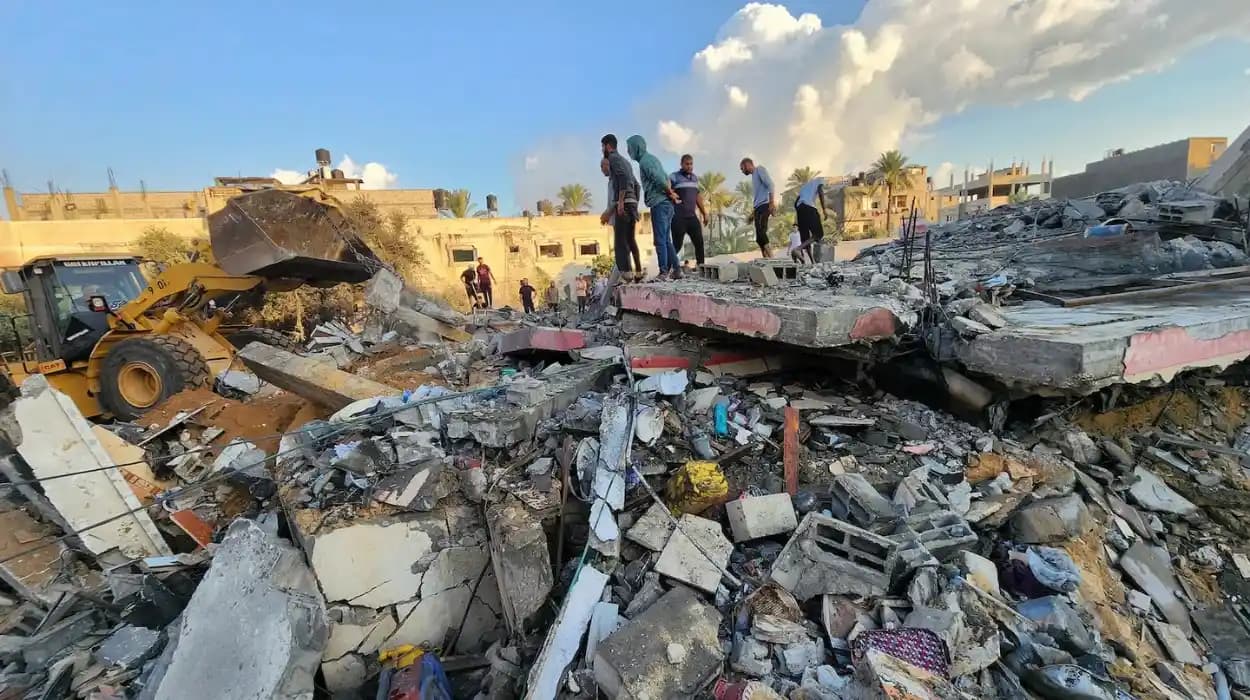Aid agencies have issued stark warnings about the
devastating humanitarian impact of Israel's ongoing assault on Gaza City,
describing it as a "death sentence" for civilians trapped in the
besieged enclave. The bombardment has cut off critical humanitarian access, escalating
fears of widespread civilian suffering and collapse of essential services.
Israel's Assault Triggers Warnings From Aid Agencies
As reported by Mehreen Zahra-Malik of Al Jazeera, aid
agencies including the United Nations and Red Cross have condemned Israel’s
recent military operations targeting Gaza City. They warn that the intense
bombardment has severely restricted humanitarian corridors, leaving civilians
with no safe means of access to food, water, or medical supplies. The situation
was described as catastrophic for the civilian population.
Humanitarian Access Severely Restricted
Kate Allen of Reuters detailed statements from multiple aid organisations stressing how Israeli airstrikes and ground operations have effectively sealed off Gaza City, the most densely populated area in the Gaza Strip. An International Committee of the Red Cross (ICRC) spokesperson said,
“The bombardment has cut humanitarian access to Gaza City, turning what was already a dire situation into a full-blown humanitarian crisis.”
This
restriction has impeded the delivery of crucial aid and medical evacuations, heightening
concerns over an imminent health disaster.
Civilian Populations Bear the Brunt
According to BBC’s Orla Guerin, humanitarian agencies have emphasised that the relentless assault disproportionately impacts civilians, including women and children, who remain unable to flee the city despite urgent calls for evacuation. Mohammed al-Hajjar, a UN aid official quoted by BBC, said,
“People are trapped without food, water or medical care. This military assault is tantamount to a death sentence for many.”
The UN has called for
immediate cessation of hostilities impacting civilians.
Aid Agencies Call for Ceasefire and Humanitarian Corridors
Multiple sources confirm that aid agencies, including Médecins Sans Frontières (MSF) and the UN Relief and Works Agency (UNRWA), have made urgent appeals for a ceasefire or at least safe passages that would enable aid delivery and civilian evacuation. An MSF spokesperson noted,
“Without humanitarian corridors, the scale of civilian suffering will multiply. This is entirely preventable if warring parties allow aid workers safe access.”
International Community Response and Challenges
Al Jazeera also highlights diplomatic efforts underway to
broker temporary truces for humanitarian access, but these face considerable
challenges amid ongoing hostilities. Despite global calls for de-escalation,
the military operations continue at a relentless pace, raising fears of a
broader regional destabilisation.
The Broader Impact on Gaza
As reported by Reuters, the destruction of infrastructure
and interruption of essential services such as electricity and water supplies
add layers of crisis to an already fragile health and social system in Gaza
City. Hospitals operate under critical conditions; medical staff report
overwhelming numbers of casualties and shortages of supplies.
The collective warnings from aid agencies underscore the urgent need for immediate action to avert a humanitarian catastrophe in Gaza City. The bombardment has not only devastated critical infrastructure but has closed off vital lifelines for civilians, many of whom are at grave risk. The international community remains focused on seeking pathways to negotiate humanitarian relief amid a conflict increasingly described by humanitarian actors and media as a "death sentence" for Gaza City’s residents.
